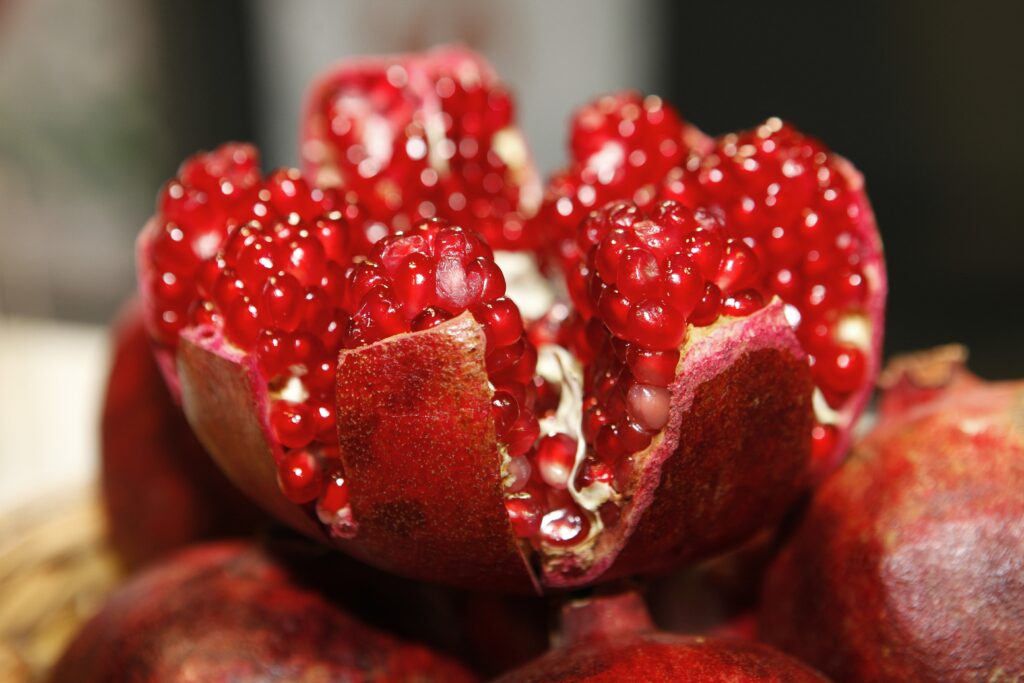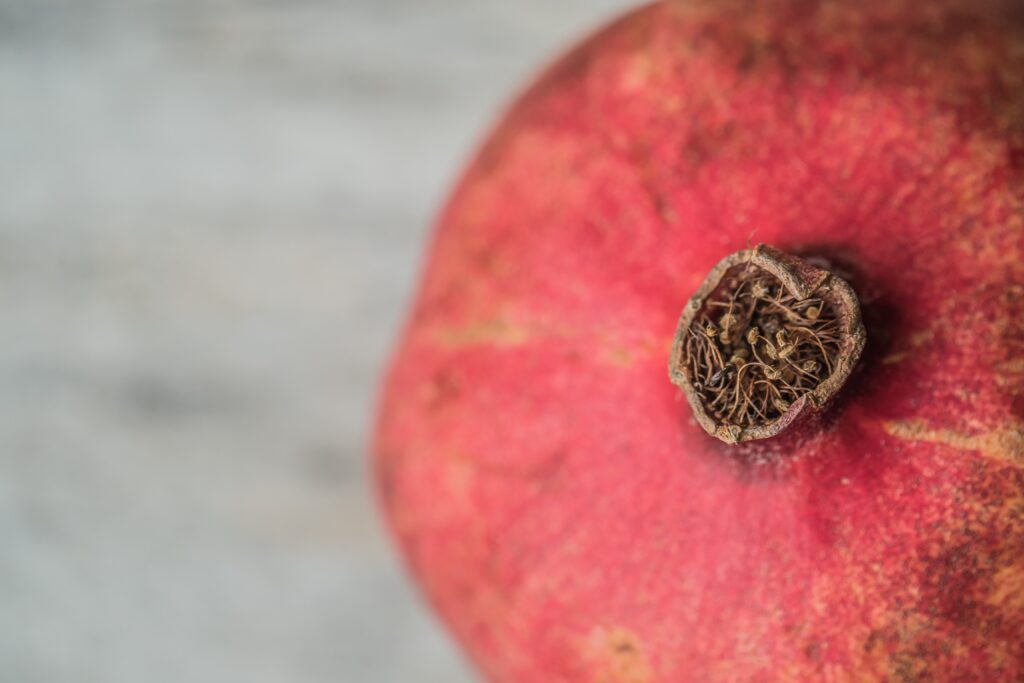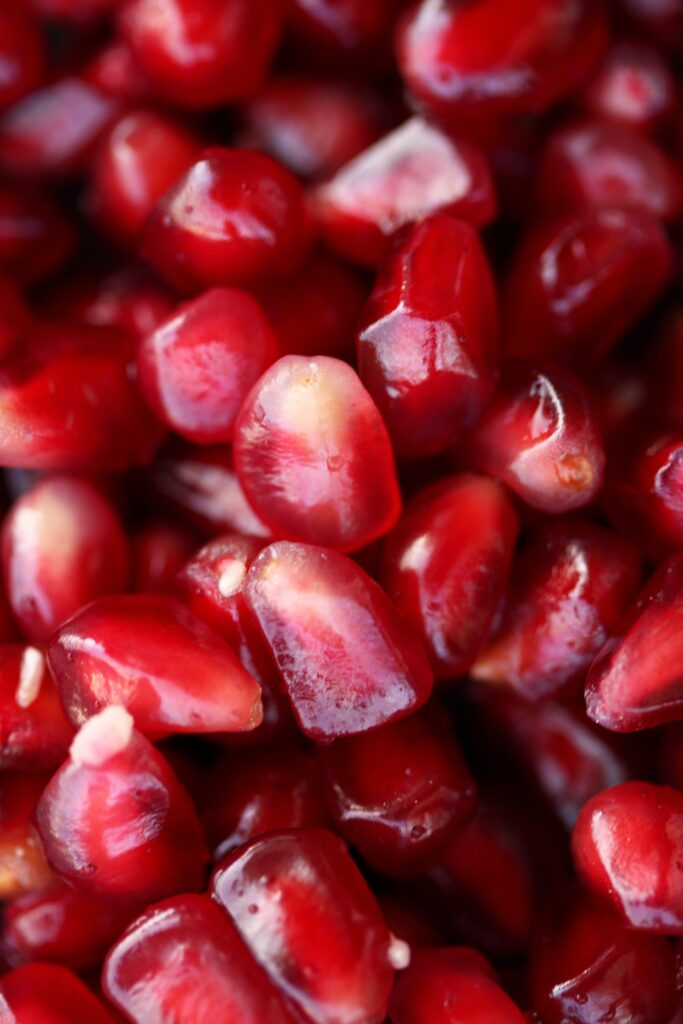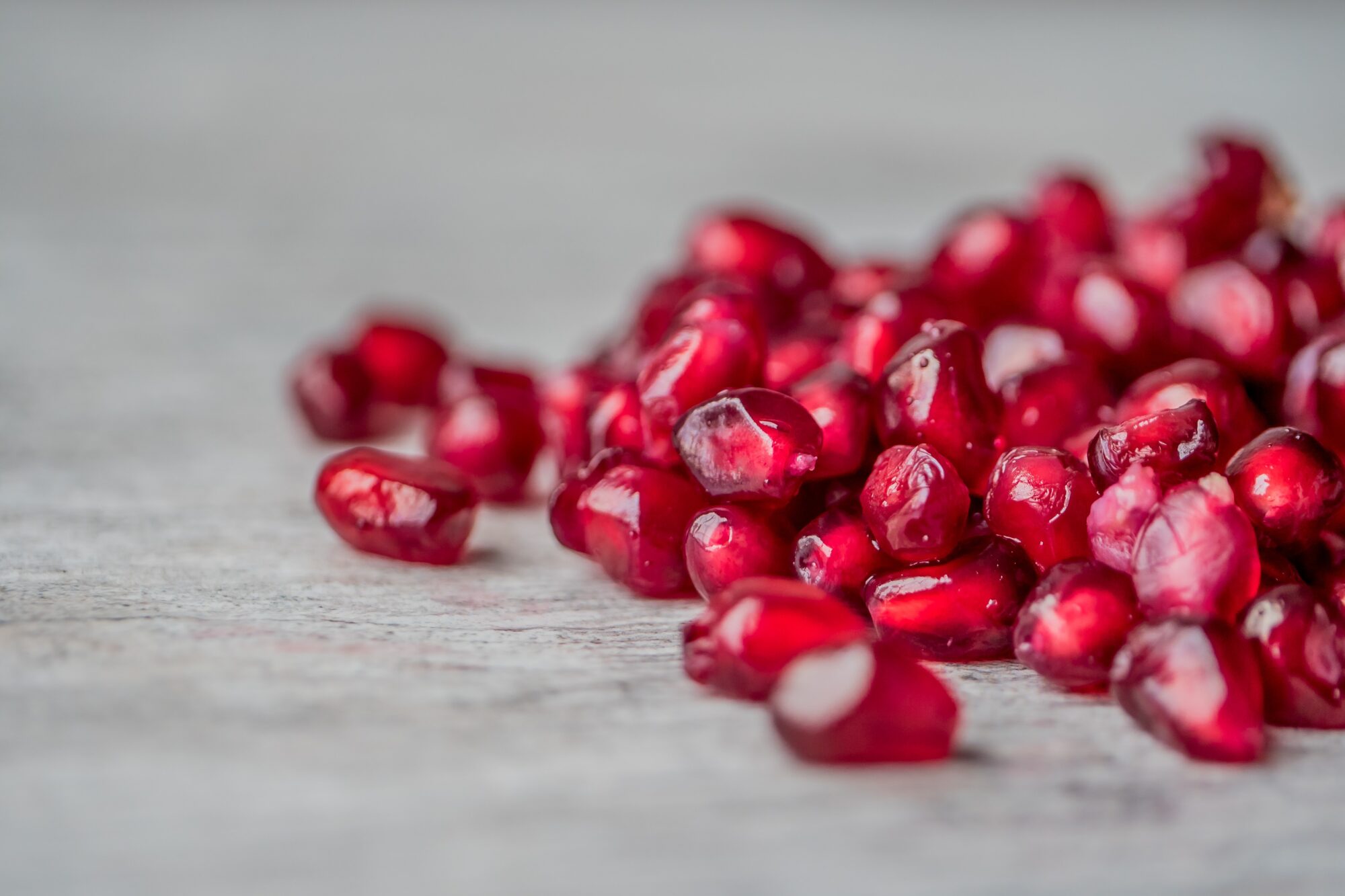Can dogs eat pomegranate seeds? This is a common question among dog owners who want to know if it’s safe to share this delicious fruit with their furry friends. While pomegranates are known for their health benefits, it’s important to understand whether they are safe for dogs to eat. In this blog post, we will explore whether dogs can eat pomegranate seeds, skin, and peel extract, as well as the health benefits and risks of feeding pomegranates to dogs.
Can Dogs Eat Pomegranate Seeds?
The answer is yes, dogs can eat pomegranate seeds, but only in moderation. Pomegranate seeds are high in antioxidants, which can help to boost your dog’s immune system and promote overall health. However, pomegranate seeds are also high in sugar, so feeding your dog too many of them can lead to digestive problems, such as diarrhea or stomach upset.

Can Dogs Eat Pomegranate Skin?
No, dogs should not eat pomegranate skin as it is tough to digest and may cause digestive problems. Pomegranate skin is also high in tannins, which can cause mouth irritation or stomach upset in dogs. It is best to remove the skin before feeding pomegranate to your dog.
Can Dogs Eat Poppy Seeds? What You Need To Know
Can Dogs Eat Pomegranate Peel Extract?
No, dogs should not eat pomegranate peel extract as it is highly concentrated and may cause digestive problems or allergic reactions. Pomegranate peel extract is often used as a supplement for its health benefits, but it is not safe for dogs to consume in large quantities.

Arent Pomegranates on the Label of Some Dog Products?
Yes, some dog products such as dog food and dog treats may contain pomegranates or pomegranate extract as an ingredient. Pomegranates are a source of antioxidants and can provide health benefits for dogs in moderation. However, it’s important to note that not all dog products are created equal, and it’s essential to read the label carefully to make sure that the product is safe for your dog.
If you’re considering purchasing dog products that contain pomegranates, look for products that are specifically formulated for dogs and have undergone testing to ensure their safety. Check with the manufacturer to make sure that the pomegranate is used in moderation and that the product is appropriate for your dog’s breed and size. Always introduce new foods or treats to your dog’s diet gradually and monitor your dog’s reaction to the product.
It’s also important to note that while pomegranates can provide health benefits for dogs, they should not be the only source of nutrition in your dog’s diet. A balanced and varied diet, along with regular exercise and veterinary check-ups, is essential to maintaining your dog’s health and wellbeing.

Health Benefits of Pomegranates for Dogs
Pomegranates are a great source of antioxidants, which can help to boost your dog’s immune system and reduce the risk of chronic diseases. Pomegranates are also high in fibre, which can help to regulate your dog’s digestive tract and promote healthy bowel movements. Additionally, pomegranates contain vitamin C and potassium, which can help to maintain your dog’s heart health and reduce the risk of cardiovascular disease.
Help! My Dog Ate a Prawn: What You Need To Know
Risks of Feeding Pomegranates to Dogs
Feeding your dog too many pomegranates or pomegranate seeds may lead to digestive problems, such as diarrhea or stomach upset. Pomegranates are also high in sugar, so they should be fed to dogs in moderation. Additionally, pomegranate juice may be too acidic for some dogs, which can cause mouth irritation or upset stomach. If you’re unsure whether pomegranates are safe for your dog, it’s best to consult your veterinarian.

Feeding Pomegranates to Your Dog
If you want to feed your dog pomegranates, it’s important to do so in moderation. Pomegranate seeds should be removed from the fruit and given to your dog as a treat or mixed with their regular food. You can also find pomegranate extract in some pet food or dog treats. However, it’s important to read the label carefully and make sure that the product is safe for your dog to consume.
What About Pomegranate Dog Treats?
It depends on the ingredients used to make the pomegranate dog treats. If the dog treats are made with natural and safe ingredients, and the pomegranate is used in moderation, then it may be safe for dogs to eat. However, it’s important to read the label carefully and check with the manufacturer to make sure that the dog treats are safe and appropriate for your dog’s breed and size.
If you’re considering giving your dog pomegranate dog treats, it’s important to introduce them gradually and monitor your dog’s reaction. Watch for any signs of digestive upset, such as vomiting or diarrhea, and discontinue use if you notice any adverse effects. Always consult your veterinarian if you have any concerns about your dog’s health or nutrition.

What to Do if Your Dog Eats Pomegranates
If your dog eats pomegranates or any part of the pomegranate fruit, it’s important to take action quickly. Here are the steps to follow if your dog eats pomegranates:
- Remove any remaining pomegranate pieces from your dog’s mouth to prevent choking or further ingestion.
- Monitor your dog for any signs of digestive upset, such as vomiting, diarrhea, or abdominal pain.
- Call your veterinarian and let them know that your dog has eaten pomegranates. They may recommend that you bring your dog in for an examination or provide advice on how to monitor your dog’s symptoms.
- If your dog is experiencing severe symptoms or having difficulty breathing, seek emergency veterinary care immediately.
- Provide your veterinarian with as much information as possible about how much pomegranate your dog consumed and what parts of the fruit they ingested.
In some cases, your veterinarian may recommend inducing vomiting or administering activated charcoal to help remove any remaining pomegranate from your dog’s digestive system. Treatment will depend on the severity of your dog’s symptoms and the amount of pomegranate they consumed.
Prevention is always the best course of action, so it’s important to keep pomegranates and pomegranate products out of your dog’s reach. Be sure to store pomegranates and pomegranate products securely, and supervise your dog closely when they are around these foods.

Recap: Can dogs have Pomegranates?
In conclusion, while pomegranates are known for their health benefits, it’s important to understand whether they are safe for dogs to eat. Pomegranate seeds are safe for dogs to eat in moderation, but the skin and peel extract should be avoided. Feeding your dog too many pomegranates or pomegranate seeds may lead to digestive problems, so it’s best to give them as a treat or mixed with their regular food. As with any new food or treat, it’s important to monitor your dog’s reaction and consult your veterinarian if you have any concerns about their health.

Pingback:Can Dogs Eat Cabbage? A Comprehensive Guide - Pet Snacking